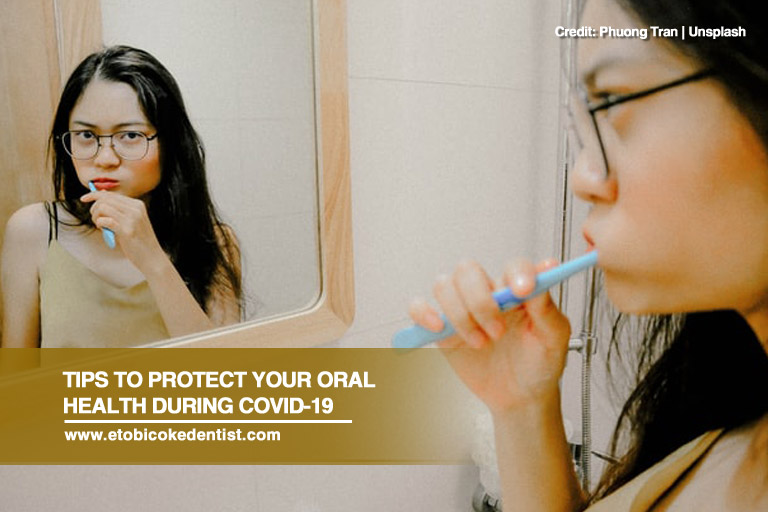
Today, many people may be focusing on how not to get infected by the coronavirus disease (COVID-19). However, proper and thorough oral care should also be everyone’s concern during the pandemic. Maintaining your oral health is an important part of warding off infection risks.
You want to keep your teeth clean and healthy so you won’t have to experience a dental emergency and not get immediate attention because the closest clinic to your home is temporarily closed.
Read on to learn about simple yet impactful ways to protect your oral health and stave off dental problems.
1. Brush and Floss Regularly
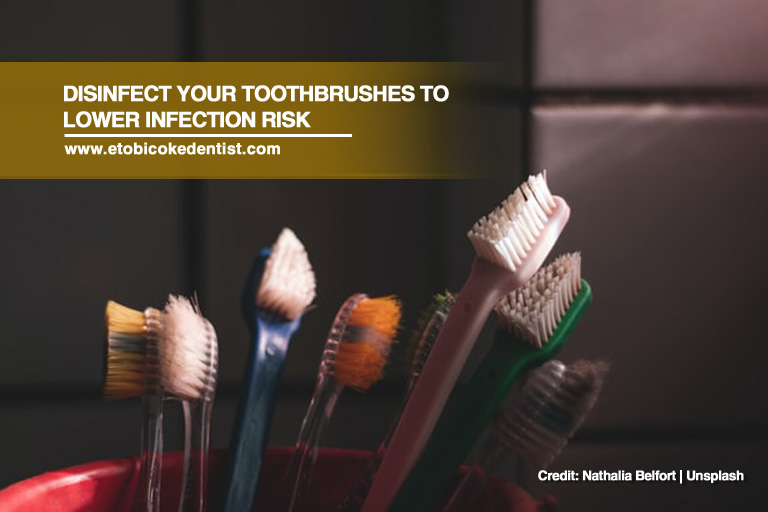
Tooth decay is one of the most common dental problems among children and adults. It happens when oral bacteria attack the enamel (surface of the tooth) and create acids that damage it. Gradually, tooth decay can cause cavities that bear holes in the teeth. Ignoring treatment can result in pain, infection, and worse, tooth loss.
At the very beginning, you can stop the development of decay by regularly adhering to proper dental hygiene. Start off with regularly brushing and flossing your teeth. Make it a habit to brush your teeth at least twice (in the morning and before bedtime) daily and floss at least once a day.
Brush your teeth for about 2 minutes, making sure to clean all areas of your mouth.
2. Keep Your Toothbrush Clean at All Times
As a preventive measure, disinfect all your toothbrushes since they can become a channel for viral transmission.
Disinfecting your toothbrush is a must if you store it along with other toiletries and a few steps away from the toilet. Research from Rice University suggests that COVID-19 genetic material may be found in feces. However, further studies are needed to confirm viral transmission through stool. Given this possibility, it’s still important to exercise caution.
Keep the toilet lid closed when you flush. Cover toothbrushes, floss, and tongue cleaners when not in use. To disinfect dental cleaning materials, soak them in a mixture of mouthwash and hydrogen peroxide.
3. Rinse With a Non-Alcoholic Mouthwash
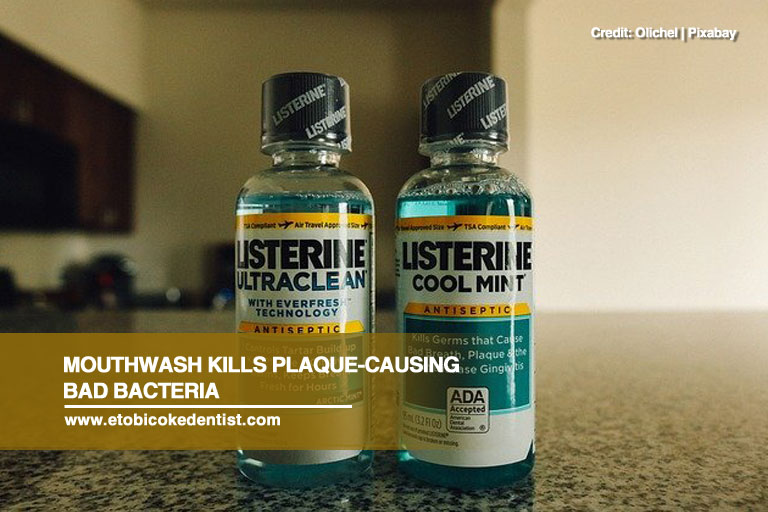
Gargling with a mouthwash that doesn’t contain alcohol twice a day is also helpful in preventing plaque buildup. Plaque on teeth can result in gum inflammation (commonly known as gingivitis).
The mouth contains oral microbiomes that, when in good balance, help fight off diseases. Using mouthwash and toothpaste products that contain high levels of alcohol and antibacterial ingredients can throw off the balance of good bacteria in the mouth. So ditch any mouth-cleansing products designed to banish oral bacteria. Instead, opt for fluoride-based toothpaste and non-alcohol-based mouthwash.
4. Eat Healthy
A healthy does more than nourish your body with the right vitamins and minerals. As it turns out, your diet does affect your oral health condition. That’s why it’s important to eat nutritious food and be more mindful of your eating habits to keep your teeth strong and healthy.
It may be best to cut back on your snacking since frequent exposure of your teeth to food and drinks can produce damage-causing acids. The more your teeth are immersed in acids, the weaker and more prone they are to damage.
Avoid food and drinks that are rich in sugar. They can contribute to plaque buildup. In addition, steer clear from hard foods that are likely to promote tooth breakage including candies, peanut brittle, popcorn, and even stick candies. Drink water more often to keep your mouth hydrated and to flush out bad bacteria.
There are many delicious foods that provide your body with much needed vitamins and minerals. Examples are:
- Foods, leafy greens, nuts, and fish – They are good sources of calcium that helps strengthen the teeth and enamel.
- Fish, dairy products, eggs, meat; lentils, soybeans, pumpkin seeds, and other vegan sources – Contain abundant amounts of phosphorus that encourage the regrowth of the enamel.
- Leafy vegetables – They’re rich in vitamin K and antioxidants that promote healing.
- Dark chocolate, berries, and nuts – contain high levels of polyphenols that help build the body’s defense against infections.
5. Avoid Smoking and Vaping
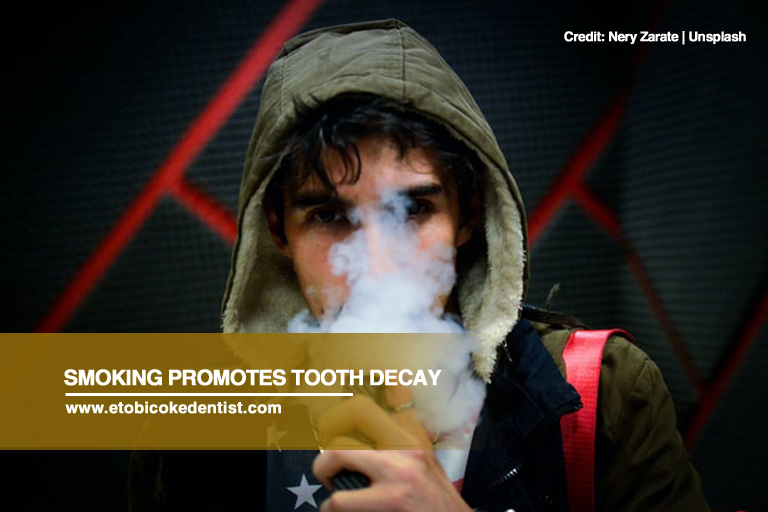
According to the Center for Disease Control and Prevention (CDC), smoking could weaken your immune system and could possibly heighten your risk of getting COVID-19. The habit also makes the smoker become susceptible to certain oral health conditions like oral cancer, gum disease, and loss of teeth.
In the case of vaping, one study suggests that electronic cigarettes produce vapour that can inflame the oral cells and damage gum tissue. Vaping can also dry the mouth, putting a smoker at risk of tooth decay.
Giving up smoking can prove to be a challenge, but making the decision to do so puts you a step closer towards healing and improved wellness.
6. Take Care of Your Gums
Keeping your gums healthy boosts your protection against any infection. Evidence suggests that gum health and immune systems are interconnected. A healthy mouth helps prevent intruders from attacking the immune system.
Your lifestyle can affect your oral health. Consider these tips in keeping your teeth and gums healthy:
- Observe proper dental hygiene. As mentioned above, you need to brush, floss, and rinse daily using oral-friendly products.
- Get enough sleep. Aim to get a good 8 hours of uninterrupted sleep (9 hours for teens) every night, as adequate sleep is vital in boosting your immune system and protecting your oral health. Sufficient sleep is found to be effective in lowering the risk of gum inflammation.
7. Don’t Use Your Teeth as Tools!
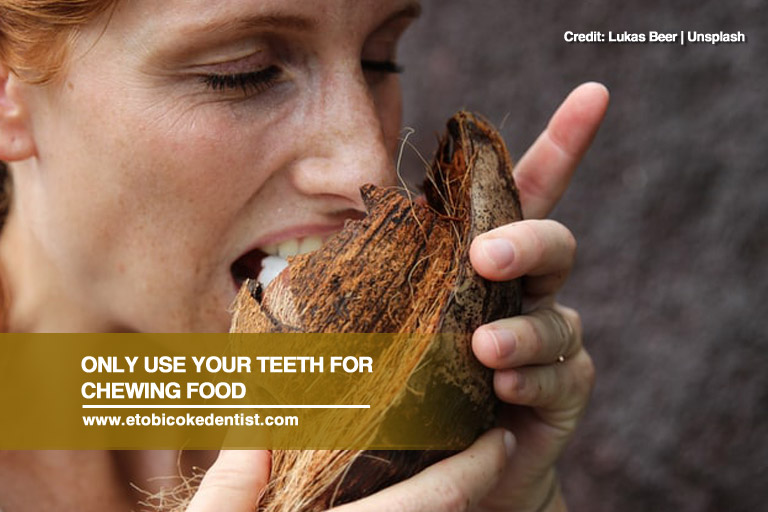
Many of us are accustomed to using our teeth to tear open a sachet in the absence of scissors, hold things when our hands are full, or bite our nails when we’re anxious.
While these habits provide support and comfort, they put the teeth under stress and pressure. Continued use of the teeth as tools can cause them to crack or become loose — you may even pull a tooth out.
Serious teeth damage may need restorative treatments like dental implants, crowns, or bridges. Protect your teeth from damage by using and keeping the proper tools in handy right when you need them.
8. Exercise
A thorough workout doesn’t only help you achieve the body you want, but it’s also important in keeping your mouth and entire body healthy. Exercising also prevents you from getting sluggish, energizes your body to keep you going throughout the day, and promotes better sleep.
Nearby gyms, dance studios, and parks may be temporarily closed during this pandemic, but there’s a variety of ways to stay physically active. Try going for a 20-minute walk daily (just make sure to observe social distancing). Try yoga or subscribe to guided home workouts on YouTube. A regular exercise regimen is effective in fortifying your immune system.

Protect your oral health at all costs during the COVID-19 pandemic. In case you’ll be needing total dental care in Etobicoke, know that our practice has your back.
Contact Dr. Mark Rhody Dentistry right away if you have any dental problems. We want to help you as quickly as possible and alleviate pain and future problems with our emergency dental care services. Call us at (416) 231-4281 or fill out our online form to set an appointment. We offer service in English, Italian, Latvian and Portuguese.
